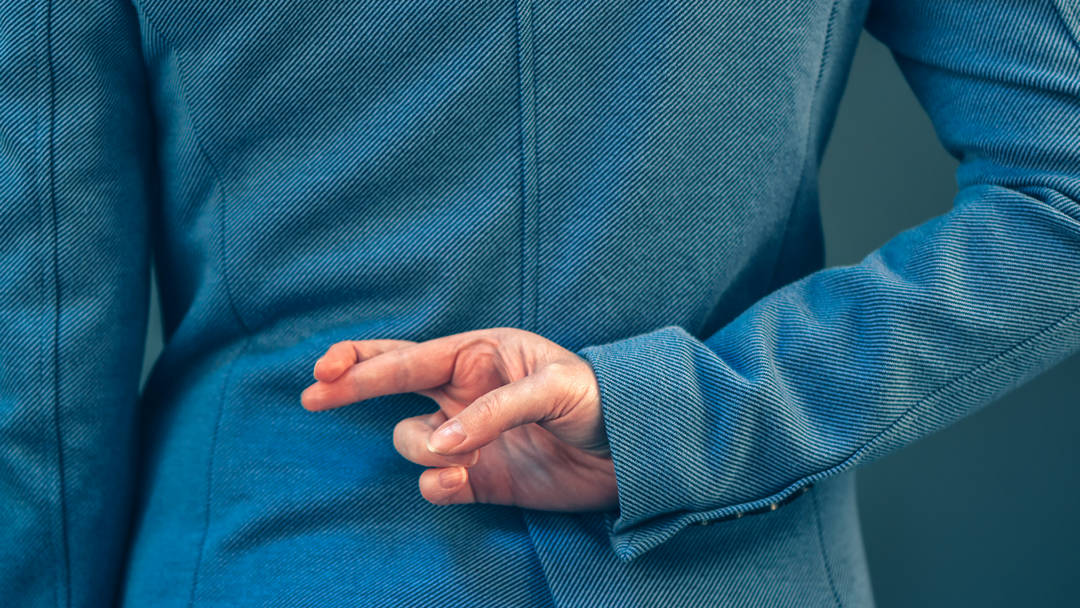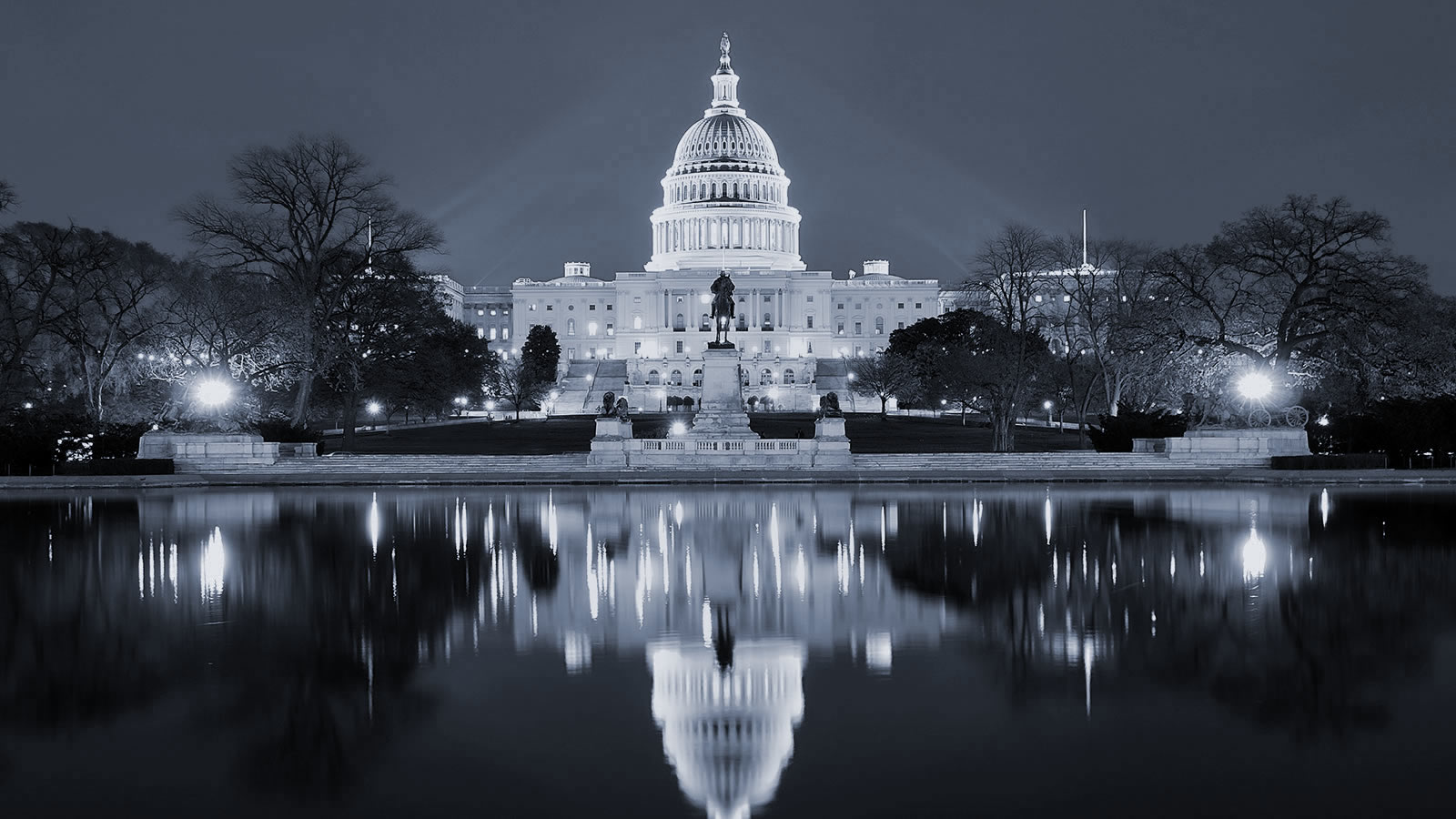
Jan 3, 2020 | Blog, News, Your Rights
You Won’t Lose Your Gun Just For Smoking Recreational Marijuana – In Illinois. 11,000 marijuana conviction expungements on 2020 new years day – In Illinois. One database fills while another “empties”.
Rumors that Illinois gun owners will lose their firearms if they use cannabis under the state’s new legalization mandate are false.
That’s according to multiple authorities after major news outlets published stories claiming gun owners who purchase adult-use cannabis in Illinois would be placed into a database banning them from buying firearms.
The Illinois State Police said Dec. 31 it will not revoke Firearm Owner Identification Cards based solely on someone’s marijuana usage.
Illinois State Rifle Association lobbyist Ed Sullivan said cannabis dispensaries cannot share identifying information with law enforcement agencies unless the customer authorizes it.
But Sullivan notes the federal government still considers marijuana a Schedule I narcotic.
He said this allows the federal Bureau of Alcohol, Tobacco, and Firearms (ATF) to obtain the records of medical cannabis users and potentially restrict their ability to buy guns from Federal Firearms License (FFL) dealers.
“If you intend to use cannabis and own a firearm taking the recreational cannabis route has less potential, detrimental effects on your 2nd Amendment rights than the medical cannabis route,” Sullivan said.
What about Michigan… Is anybody out there? Hello?…………………..What about Michigan?
Read the Rest of the Story Here
Recent Posts

Sep 27, 2019 | Blog
LANSING – Taking steps to protect Michigan’s emerging marijuana industry and its consumers, Attorney General Dana Nessel joined a bipartisan group of 21 Attorneys General Monday, urging Congress to pass legislation that allows legal businesses to access the federal banking system.
Under existing law, financial institutions are prohibited from providing banking services to marijuana businesses in the 33 states and other U.S. territories where medical or retail marijuana sales are legal. As a result, businesses that comply with state law are forced to operate as cash-only businesses, posing serious safety threats and creating targets for violent and white-collar crime.
The legal marijuana industry employs hundreds of thousands of Americans nationwide and is expected to provide more than 40,000 jobs in Michigan by the time the market is fully established, according to the Michigan Cannabis Industry Association. It is estimated that the industry will generate revenue between $50 billion and $80 billion nationally over the next decade.
“All legal and legitimate businesses should have a safe place to deposit their revenue and not have to rely on under-the-floor safes to store their legally earned money,” Nessel said. “This is not just a states’ rights issue, this is an issue of safety. The expansion of Michigan’s market to include legal sales of recreational marijuana this year compels us to join this effort to ensure we protect Michigan businesses from becoming unnecessary targets of bad actors.”
In their letter, the Attorneys General say that the legislation (H.R. 2093; S. 1028) would provide businesses oversight and reduce the risk of violent and white-collar crime affecting the growing industry by allowing marijuana businesses to access the federal banking system. The “STATES” (Strengthening the Tenth Amendment Through Entrusting States) Act already has bipartisan support with 62 cosponsors in the U.S. House and 9 cosponsors in the U.S. Senate.
Nessel joins the Attorneys General of Alaska, California, Colorado, Connecticut, the District of Columbia, Illinois, Iowa, Kentucky, Maine, Maryland, Massachusetts, Minnesota, New Mexico, New York, Nevada, Oregon, Pennsylvania, Rhode Island, Vermont, and Washington in sending this letter.
A copy of the letter is available here.
Recent Posts

Aug 12, 2019 | Blog, Medical Marijuana
A judge’s ruling that a vehicle search prompted by an odor of marijuana was illegal.
An Pennsylvania judge has ruled that state police who said they smelled marijuana in a vehicle weren’t allowed to search the vehicle once they were shown the driver’s medical marijuana card.
The (Allentown) Morning Call reports that a Lehigh County judge tossed out evidence cited in support of drug and firearms counts stemming from the Nov. 7 search of the vehicle in Allentown.
“The smell of marijuana is no longer per se indicative of a crime,” Judge Maria Dantos wrote in her opinion filed earlier this month.
Prosecutors must now decide whether to appeal to state Superior Court or try to move forward without the evidence.
Defense attorney Joshua Karoly said the ruling could help change a rule allowing police to search based solely on the odor of drugs.
An eastern Pennsylvania judge has ruled that state police troopers who said they smelled marijuana in a vehicle weren’t allowed to search the vehicle once they were shown the driver’s medical marijuana card.
Have you been arrested or charged with a crime?
Call Komorn Law for a free case evaluation now (248) 357-2550 or visit KomornLaw.com or Read client reviews.
“The smell of marijuana is no longer per se indicative of a crime,” Judge Maria Dantos wrote in her opinion filed Friday.
Recent Posts
[kl_posts posts_per_page=”10″ order=”desc”]

Jul 29, 2019 | Blog, News
From the Marijuana Policy Project who was founded in January 1995 and medical marijuana was illegal in every state. Favorable legislation had not been introduced in Congress in a decade. Since then, Congress has approved budget riders to protect state-legal medical marijuana programs every year since late 2014; numerous bills have been introduced to remove federal penalties for state-legal conduct and to end federal marijuana prohibition entirely; recreational, adult-use marijuana is now legal in 11 states and the District of Columbia; medical marijuana is legal in 33 states and the District of Columbia; and much more.
Last updated: July 24, 2019
Only 23 states allow citizen-initiated ballot initiatives, meaning in most states the only way to reform marijuana laws is via the legislature.
With polls showing that 66% of Americans support making marijuana use legal and around 90% support for allowing medical marijuana, lawmakers are increasingly getting the message that constituents want them to act on sensible and humane marijuana policies.
On June 25, 2019, Illinois made history when it became the first state to approve legalizing and regulating adult-use marijuana legislatively, rather than via voter initiative. MPP led the lobbying campaign and played a key role in crafting the measure. (Vermont became the first to legalize adult’s possession and cultivation — but not sales — legislatively in 2018. MPP also played the leading role in that advocacy effort and is continuing to work to regulate sales.)
Legislatures have approved several other significant marijuana policy reforms this year. In Hawaii, New Mexico, and North Dakota, the governors signed decriminalization bills into law. Meanwhile, medical cannabis was enacted in the U.S. Virgin Islands, and Guam’s Senate and governor approved legalizing and regulating marijuana for adults’ use. Unfortunately, while the Iowa Legislature sent Gov. Kim Reynolds a medical cannabis bill, she vetoed it.
The below lists 2019 state bills to adopt new laws to legalize marijuana for adults, to adopt effective medical marijuana laws, or to replace possible jail time with fines for marijuana possession. Click on the state names below to learn more about efforts in your state and to take action in support of marijuana policy reform.
We also encourage you to check out MPP’s Marijuana Policy Progress Report 2019. The report — which was released on July 22, 2019 — includes MPP’s top 10 list of marijuana policy reforms this year, as well as a state-by-state run down of marijuana policy reform bills that were taken up by state legislatures. Find out if your state expanded its medical marijuana or adult-use law, eased record expungements, or made other improvements.
Marijuana Legalization Legislation
States with bills to legalize — and in most cases regulate — marijuana for adults: 27 and Guam
- Arizona (SRC 1022, which would have referred a statutory ballot measure to voters; the bill died in committee)
- Connecticut (HB 7371, SB 1085, SB 1138, HB 5595, HB 6863, SB 496, SB 690 SB 744; HB 7371 passed out of the General Law Committee, SB 1085 passed out of Judiciary, and SB 1138 passed out of Finance; the three pieces of a legalization package are on the floor but did not get a vote before adjournment)
- Delaware (HB 110; the House Revenue and Finance Committee advanced the bill in an 8-3 vote on June 5; it now advances to the Appropriations Committee; the legislature adjourned but the bill carries over to 2020)
- Florida (S. 1780, H. 1117, S. 1298; S. 1298 proposed a constitutional amendment that would go to voters for adults to grow, possess, and use cannabis; the legislature adjourned without voting on the bills)
- Hawaii (HB 1515, HB 1581, HB 708, SB 606, SB 686, SB 702; these bills did not advance out of committee before a deadline)
- Illinois (SB 7, HB 902, HB 2477;HB 1438; the Senate approved the substitute bill (HB1438) in a 38-17 vote on May 29 and the House followed suit on May 31, 66-47; Gov. J.B. Pritzker signed the bill into law on June 25, 2019)
- Indiana (HB 1460, HB 1685, SB 213; did not advance out of committee before a deadline)
- Iowa (SF 469; did not advance before a legislative deadline)
- Kentucky (SB 80; the legislature adjourned without voting on the bill)
- Louisiana (HB 509, HB 564; these bills were defeated in the House Criminal Justice Committee)
- Maryland (SB 771 and SB 656; HB 632 proposed a constitutional amendment that would go to voters in 2020; these bills did not advance before the legislature adjourned)
- Minnesota (HF 2285, HF 265, HF 465, SF 2840, SF 619, and HF 420; HF 265 and HF 465 propose a constitutional amendment that would go to voters in 2020; the Senate bills were voted down in committee in a 6-3 vote)
- Mississippi (SB 2349, died in committee)
- Missouri (HB 157, HB 551, died in committee)
- Montana (HB 770; did not advance before the legislature adjourned)
- New Hampshire (HB 481; the House voted 200-163 to pass the bill on April 4, 2019, sending the bill to the Senate; on May 30, the Senate voted to delay action on the bill until January 2020)
- New Jersey (S 830, A 1348, A 3819; the Senate Budget and Appropriations Committee and the Assembly Appropriations Committee each voted on November 26 to advance S2703 and A4497; both bills carried over to 2019; the Senate Judiciary Committee reported a revised bill out on March 18, 2019)
- New Mexico (HR 356, SB 577; the House approved HR 356 in a 36-34 vote, then the bill died in the Senate Finance committee; the legislature has adjourned)
- New York (A. 1617, S. 1527, and S. 1509 and A. 2009, which were budget bills that included taxing and regulating cannabis for adults’ use; the legislature adjourned without voting on legalization)
- North Carolina (SB 58)
- Pennsylvania (HB 50)
- Rhode Island (H 5828 and H 5151; H 5151 was a budget bill that includes taxing and regulating cannabis for adults’ use; however, the budget that passed the House did not include legalization, and the legislature adjourned without voting on H 5828)
- Tennessee (HB 235, SB 256 would legalize under an ounce of marijuana, without legalizing sales or cultivation; the legislature adjourned for 2019, but the two-year session reconvenes in 2020)
- Texas (SB 1581, HJR 108, SJR 8; the latter two proposed a constitutional amendment that would go to voters in 2020; the bills did not advance before the legislature adjourned)
- Virginia (HB 2371, HB 2373, both of which died in committee)
- West Virginia (SB 143, HB 2331, HB 2376, HB 3108; these bills did not advance before the legislature adjourned)
- Wisconsin (AB 220; the governor’s budget — AB 56/SB 59 — would have legalized possession and cultivation of limited amounts of marijuana; the budget that was approved did not include those provisions)
- Guam (the Senate approved Bill 32‐35 on March 27 in an 8-7 vote, and it was signed into law by Gov. Lou Leon Guerrero on April 3, 2019)
Ten states have already passed laws to regulate marijuana like alcohol: Alaska, California, Colorado, Illinois, Maine, Massachusetts, Michigan, Nevada, Oregon, and Washington. All but Illinois were by ballot initiative.
A 11th, Vermont, allows adults to possess and cultivate marijuana, but does not yet allow regulated sales. Vermont’s S. 54 and H. 196 would allow and regulate commercial cultivation, product manufacture, and sales. S. 54 passed the state Senate and will be taken up in the House in early 2020.
Bills to Remove Possible Jail Time — Often Imposing a Fine — for Simple Possession (“Decriminalization”)
States with decriminalization bills: 17
- Alabama (SB 98, HB 96; the Senate Judiciary Committee approved SB 98 in a 11-0 vote on April 17; after being amended to apply to only five grams, HB 96 was voted down in the House Judiciary Committee in a 5-6 vote; the legislature has adjourned)
- Arizona (SB 1284, HB 2555; the legislature adjourned without voting on the bills)
- Arkansas (HB 1972; did not advance before the legislature adjourned)
- Florida (H. 1289, S. 1714; the legislature adjourned without voting on the bills)
- Hawaii (HB 1383, HB 434; HB 1383 — which only includes up to three grams — has passed both chambers and was sent to the governor; Gov. David Ige signed the bill into law on July 9, 2019)
- Idaho (H. 140, an extremely limited measure that only applied to those with no prior drug offenses; died in committee)
- Iowa (HF 93; died in committee)
- Indiana (HB 1283, HB 1540, HB 1658; did not advance out of committee before a deadline)
- Kentucky (SB 82, HB 265; the legislature adjourned without voting on the bills)
- Louisiana (HB 59; was withdrawn prior to introduction)
- New Jersey (S472, A3468, S1926)
- New Mexico (SB 323; passed the legislature and Gov. Michelle Lujan Grisham signed the bill into law on April 3, 2019)
- North Dakota (HB 1155, HB 1050; the legislature passed HB 1050 and it was signed into law by Gov. Doug Burgum; it only applies to those 21 and older and carries a hefty criminal fine)
- Oklahoma (HB 2614, SB 1030; SB 1030 has passed both chambers, but in different versions; as passed by the House, it would have reduced the penalty to a misdemeanor fine of up to $400; however, the conference committee version did not include decriminalization)
- South Carolina (HB 3276; did not advance before a legislative deadline, carries over to 2020)
- Texas (HB 63, SB 156; HB 63 passed the House in a 98-43 vote on April 29, but was not brought to a vote in the Senate; it would have imposed a $500 criminal fine for possession of up to an ounce)
- Virginia (SB 997, HB 2079, HB 2370, HB 2644; HB 2079, HB 2370, and HB 2644 are stalled in committee; SB 997 was defeated in committee)
Twenty-six states and Washington, D.C. have decriminalized or legalized marijuana possession (including Hawaii, New Mexico, and North Dakota’s new laws).
Effective Medical Marijuana Bills
States with bills to create comprehensive medical cannabis programs: 14, plus the U.S. Virgin Islands, where the bill has been signed into law
- Alabama (HB 234, SB 236; on May 9, 2019, the Alabama Senate passed SB 236 in a 17 -6 vote; it applies only to adults 19 and older; the bill was amended in the House to merely form a study commission on the issue and was signed by the governor in that limited form)
- Georgia (SB 232; the legislature adjourned without passing it, but the legislature did pass, and Gov. Kemp signed, a bill to allow in-state access to up to 5% THC medical cannabis oil)
- Iowa (SF 104, HF 732; HF 732 passed the legislature but was vetoed by the governor; the speaker refused to call a special session for an override; the bill would remove a 0.3% THC cap and instead allow cannabis preparations with up to 25 grams of THC every 90 days, or more with a waiver from the patient’s healthcare provider)
- Indiana (SB 357, HB 1384, HB 1535; did not advance out of committee before a deadline)
- Kansas (HB 2163, SB 113, HB 2303, SB 195; the legislature adjourned without voting on the bills)
- Kentucky (HB 136; passed the House Judiciary Committee in a 16-1 vote a week before the legislature adjourned, but did not get a floor vote before adjournment)
- Mississippi (HB 1372, SB 2358, SB 2643, SC 537; SC 537 is a constitutional referral; did not pass committee prior to a deadline)
- Nebraska (LB 110; passed the unicameral legislature’s Judiciary Committee on May 10 in a 5-1 vote, with one absent and one present but not voting; the unicameral legislature did not vote on the bill prior to adjournment; a 2020 ballot measure signature drive has begun)
- North Carolina (HB 401)
- South Carolina (H. 3660, S. 366, H. 3081, H. 3272; S. 366 passed a Senate Medical Affairs subcommittee and is in the full committee; the legislature adjourned for the year but the bills will carry over to 2020)
- Tennessee (SB 486, HB 637; the legislature adjourned for 2019, but the two-year session reconvenes in 2020)
- Texas (HB 122, HB 209, HB 1365, SB 400, SB 865, SB 90, SJR 7, HJR 21; the latter two would have referred a proposed constitutional amendment to voters in 2020; the House approved HB 1365 on May 7, 2019; it would expand qualifying conditions to the state’s low-THC medical cannabis program and would allow regulators to decide the ratio of cannabinoids, which could allow for a full medical cannabis program; it did not receive a hearing in the Senate; a far more limited bill (HB 3703), which adds some qualifying conditions and removes the two-physician cap, passed both chambers and was signed into law)
- Wisconsin (AB 220; the governor’s budget — AB 56/SB 59 — would have legalized medical marijuana, but the approved budget did not include medical cannabis)
- Wyoming (HB 278; this bill did not advance before the legislature adjourned)
- U.S. Virgin Islands (Bill 32-0135; On December 28, 2018, lawmakers voted 9-4 to send the bill to the governor’s desk. He signed the bill on January 17, 2019.)
Thirty-three states, D.C., Puerto Rico, Guam, the Northern Mariana Islands, and the U.S. Virgin Islands have effective medical marijuana laws.
Don’t see your state?
If you live in a state that still prohibits marijuana and no lawmakers have taken the lead to change that, send your state legislators a note to ask them to stand up for humane and sensible marijuana policies. Take a few moments to email them in support of medical marijuana, decriminalization, or legalizing and regulating marijuana. And wherever you live, please ask your member of Congress and U.S. senators to support legislation to protect individuals who are complying with state medical marijuana and legalization laws.
This information appeared on
Michigan Policy Project – Key Marijuana Reform
Who is Marijuana Policy Project?
MPP, which was founded in January 1995, is the largest organization in the U.S. that’s focused solely on enacting humane marijuana laws.
MPP’s mission is to change federal law to allow states to determine their own marijuana policies without federal interference, to allow the medical use of cannabis in all 50 states and U.S. territories, and to regulate marijuana like alcohol.
MPP has been responsible for changing most of the state marijuana laws that have been reformed since 2000, including more than a dozen medical cannabis laws and the legalization of marijuana by voter initiative in Colorado, Alaska, Maine, Massachusetts, Nevada, and Michigan. MPP also assisted on the California campaign. MPP’s team spearheaded the campaigns that resulted in Vermont and Illinois becoming the first two states to legalize marijuana legislatively in 2018 and 2019.
MPP is actually composed of two separate organizations — MPP, founded in 1995, is the main branch that deals with lobbying and ballot initiatives, and MPP Foundation, founded in 1996, is the tax-deductible educational branch. In addition, MPP has state committees in the states where MPP is running ballot initiatives; these state committees are formed and closed every few years.
MPP has approximately 20 employees; this includes a full-time lobbyist on Capitol Hill. In addition, MPP has lobbyists on retainer in a number of states capitals around the country.
Marijuana Policy Project History
Visit the MPP for many informative articles about marijuana legislation. It’s a great site!
Recent Posts
[kl_posts posts_per_page=”10″ order=”desc”]

Jul 2, 2019 | Blog, News
July 2019
The House of Representatives approved a measure to prevent the DOJ from interfering with individual state marijuana laws, including those allowing recreational use, cultivation and sales.
The amendment, would also shield cannabis laws in Washington, D.C. and U.S. territories, is attached to a large-scale appropriations bill to fund parts of the federal government for Fiscal Year 2020.
The inclusion of adult-use programs represents a significant expansion of an existing policy that protects only local medical cannabis laws from federal intervention which was first enacted in 2014.
The expansive attachment was approved in a floor vote of 267 to 165. The tally is considered by legalization supporters to be an signal of the depth of support there is in Congress for a more comprehensive change to federal marijuana policies.
“This is the most significant vote on marijuana reform policy that the House of Representatives has ever taken,” said NORML Political Director Justin Strekal. “Today’s action by Congress highlights the growing power of the marijuana law reform movement and the increasing awareness by political leaders that the policy of prohibition and criminalization has failed.”
“The historic nature of this vote cannot be overstated,” he said. “For the first time, a chamber of Congress has declared that the federal government should defer to state cannabis laws.”
The measure, sponsored by Reps. Earl Blumenauer (D-OR), Eleanor Holmes Norton (D-DC) and Tom McClintock (R-CA), would bar the Department of Justice from spending money to prevent states and territories from implementing their own laws that authorize the use, distribution, possession, or cultivation of marijuana.
“We’re watching the growth of this industry, a multibillion-dollar industry. We’re watching state after state move forward,” Blumenauer said in a floor debate on the state protection amendment on Wednesday evening. “Every one of us on the floor of the House who are here now represent areas that have taken action. We have had embedded in our legislation protections for medical marijuana. And this would simply extend that same protection to prevent the Department of Justice interfering with adult use. I strongly, strongly urge that we build on the legacy that we’ve had in the past, that we move this forward to allow the federal government to start catching up to where the rest of the states are.”
House Democratic leadership urged their conference to support the measure in a whip email on Thursday, and only eight members of the party voted against it.
Lobbying For The Whole Pie
The passage of the state protection amendment comes despite congressional offices receiving an 11th-hour email saying Greenwich Biosciences, maker of the Food and Drug Administration (FDA)-approved CBD-based medication Epidiolex, wanted lawmakers to defeat it.
Earlier on Thursday, the House approved an amendment from Rep. Jerry McNerney (D-CA) that directs the Food and Drug Administration to establish a process for regulating CBD in foods and dietary supplements.
Yes/No
Another measure passed in a voice vote, from Rep. Alexandria Ocasio-Cortez (D-NY), shifts $5 million away from the Drug Enforcement Administration toward an opioid treatment program.
Another Ocasio-Cortez amendment aimed at removing barriers to research on psychedelic drugs such as psilocybin and MDMA (ecstasy) was soundly defeated on the House floor last week.
The House is set to consider another amendment on the spending legislation in the coming days that would allow military veterans to receive medical marijuana recommendations from Department of Veterans Affairs doctors.
Make Laws-Make Money
Another bill maneuvering through the House contains language to protect banks working with state-legal cannabis businesses and removes a longstanding rider that has prevented Washington, D.C. from spending its own local tax dollars to legalize and regulate marijuana sales.
A safe marijuana banking bill was cleared by the Financial Services Committee and is expected to receive a floor vote.
The Veterans’ Affairs Committee held a hearing on four separate pieces of legislation concerning cannabis and military veterans on Thursday. And the Small Business Committee hosted a Wednesday hearing on issues facing cannabis firms, with the panel’s chairwoman announcing she would soon file a bill on the issue.
Summary: H.R.3055 — 116th Congress (2019-2020)
https://www.congress.gov/bill/116th-congress/house-bill/3055





